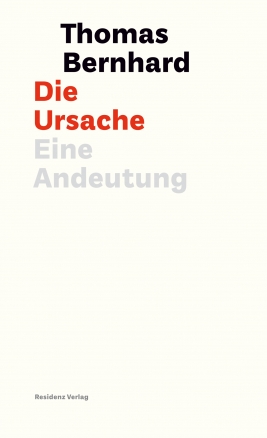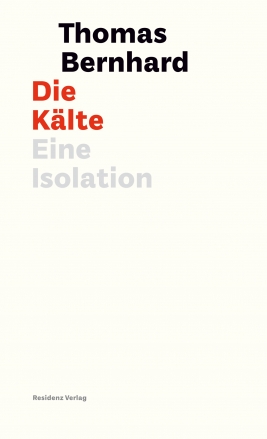… mit schier unermüdlichem Fleiß im Auffinden von Quellen, Dokumenten sowie Äußerungen verschiedenster Zeitzeugen. Durch Akribie und einen so klug wie behutsam ordnenden Zugriff auf die enormen Datenmengen besticht diese Arbeit allemal.
Vor allem aber hat sich Mittermayer zu Diskretion sowie, in der Darstellung, zu programmatischer Ruhe und Ausgeglichenheit entschlossen…
[Quelle: Frauke Meyer-Gosau, SÜDDEUTSCHE ZEITUNG]
...ein diskretes Buch, das die Bedürfnisse der nicht geringen Zahl der Bernhard-Voyeure nicht bedient...kluge, kurz gefasste Beschreibungen der narrativen Strategien Bernhards...präzise und interessant zu lesen...
[Quelle: Alfred Pfabigan, DIE PRESSE]
Endlich mal eine Bernhard-Biografie, die nicht in die Bernhard-Falle tappt: Manfred Mittermayer holt Thomas Bernhard auf den Boden der Tatsachen zurück. Und lässt ihn gerade dadurch leuchten. (...) Gründlich recherchiert und reich an Fakten, leitet sie durch des Übertreibungskünstlers Leben und Werk und gewinnt die Zuneigung des Lesers nicht zuletzt durch vorzüglich ausgesuchte Zitate. (…) Eine große Leistung. Denn sie weckt ja auch, je länger die Lektüre währt, eine wachsende Sehnsucht nach dem Kunstzeterer aus Obernathal.
[Quelle: Gisela Trahms, DIE WELT]
Manfred Mittermayer ist es gelungen, dem Meister auf den Zahn zu fühlen. (…) Mittermayer schafft es leichthin, eine wissenschaftlich fundierte Studie zu verfassen, die nirgendwo mit Fachjargon einzuschüchtern versucht; er bringt es zuwege, das Selbstbild des Autors mit den überprüfbaren Fakten in eine erhellende, oft unerwartete, manchmal geradezu komische Beziehung zu setzen…
[Quelle: Karl-Markus Gauss, NEUE ZÜRCHER ZEITUNG]
Sachbuch der Woche MDR: Zugleich dezent und inhaltsreich, (…) bestens informiert und angenehm zu lesen…
[Quelle: Rainer Moritz, MDR FIGARO]
Das Buch von Manfred Mittermayer ist für mich die ultimative Biographie des Übertreibungskünstlers Thomas Bernhard.
[Quelle: Alois Brandstetter, KLEINE ZEITUNG]
… in chronologischer Form und in größtmöglichem Abstand zu Bernhards Sprachsound, was nicht nur sachlich sehr angenehm ist.
[Quelle: Cord Riechelmann, FRANKFURTER ALLGEMEINE SONNTAGSZEITUNG]
… unheimlich akribisch und voll grandioser Zitate … als biografische Werkschau eine Wucht.
[Quelle: Frank Willmann, WELTEXPRESS]
Manfred Mittermayer macht zwei Fehler nicht: Den Ton des Meisters nachzuahmen und ihn als Person zu verklären.
[Quelle: Jean-Claude Galli, BERNER BÄR]
Mittermayers Zugriff auf Leben und Werk ist so paradox wie ertragreich, weil Bernhard-like. (…) Besonders eindrucksvoll sind Mittermayers Darstellungen von Kindheit und Jugend. (…) Manfred Mittermayers Biografie leistet zweierlei: präzise Analyse und gleichzeitig – ob freiwillig oder unfreiwillig – konsequente Historisierung eines literarischen Werks im versunkenen Kosmos der Nachkriegszeit der letzten Jahrhunderthälfte.
[Quelle: Franz Wille, THEATER HEUTE]
…die äußerst lesenswerte, weil differenzierte Auseinandersetzung mit einem der umstrittensten und markantesten östrreichischen Autoren nach 1945.
[Quelle: Katja Gasser, ZIB 1 ORF]
Die jüngsten Fakten und Erkenntnisse über Thomas Bernhards Leben und Werk – für Bernhard-Einsteiger und für Kenner gleichermaßen interessant.
[Quelle: Ernst Grabovszki, BUCHKULTUR]
Endlich ist es soweit - die lang erwartete, lang schon überfällige Thomas-Bernhard-Biografie von Manfred Mittermayer ist im Salzburger Residenz Verlag erschienen.
[Quelle: Uwe Schütte, WIENER ZEITUNG]
„Thomas Bernhard. Eine Biografie“ ist – das kann man wenige Wochen nach Erscheinen schon sagen - ein Meilenstein. Ein Standardwerk für „beamtete“ wie für „private“ Leserinnen und Leser, für Bernard-Freaks und Bernhard-Kenner. Vielleicht sogar eins für die letzten Bernhard-Hasser.
[Quelle: Heidemarie Klabacher, DREHPUNKT KULTUR]
Mittermayer behandelt Bernhard mit respektvoller Distanz, widmet sich erstmals auch Bernhards Frauenbild und setzt wesentliche Werke in Bezug zu seinen Lebensstationen. Und das alles extrem gut geschrieben und völlig unaufgeregt.
[Quelle: Rotraud Schöberl, FORMAT]
… für Bernhardianer wohl ein unverzichtbares Standardwerk. Aber auch für Nicht-Anhänger ein interessantes Werk über einen Solitär der Gegenwartsliteratur. So geht Künstlerbiografie.
[Quelle: Oliver Herzig Xing, „BÜCHER, BÜCHER, BÜCHER“]
Diese bis in die feinsten Verästelungen des Lebens, des veröffentlichten Werks und der darauf fußenden Analyse erarbeitete Menschen-Studie sagt in Summe: Wer Bernhard kennenlernen will, braucht Mittermayer.
[Quelle: OBERÖSTERREICHISCHE NACHRICHTEN]
…akribisch recherchiert, fundiert, luzid und lebendig geschrieben…
[Quelle: DIE BÜHNE]
Es ist wieder einmal Zeit sich mit Thomas Bernhard zu beschäftigen, bevor er noch zu einem klassischen Klassiker wird. Das hat er nicht verdient, dazu ist er viel zu lebendig und modern, wie diese Biografie.
[Quelle: Erwin Riedesser, 5PLUS]
… a lucid, careful, factual narrative of Bernhard’s life.
[Quelle: Ritchie Robertson, TIMES LITERARY SUPPLEMENT]
… Bernhard wird in diesem Werk in allen Facetten dargestellt, gewürdigt, aber auch kritisch beleuchtet. (…) Lest Thomas Bernhard – und Manfred Mittermayer dazu.
[Quelle: Rüdiger Dittrich, GIEßENER ANZEIGER]
Mittermayers Buch unterscheidet sich wohltuend von den Versuchen anderer Autoren, das Leben des Thomas Bernhard zu beschreiben.
[Quelle: Fel, LÜBECKER NACHRICHTEN]
Der Salzburger Germanist und durch viele Publikationen ausgewiesene Bernhard-Experte Manfred Mittermayer hat nun eine monumentale, aber leicht lesbare Biografie vorgelegt, die den Erkenntnisstand zu Leben und Werk des umstrittenen Autors zusammenfasst und zum Standardwerk für Laien und Fachleute werden wird.
[Quelle: Renate Langer, BIBLIOTHEKSNACHRICHTEN]
Die Biografie macht deutlich, dass Bernhards bis zuletzt gepflegtes Image vom missverstandenen und verfolgten Schriftsteller auf einer geschickten Selbststilisierung beruhte, die ihm über Jahrzehnte eine ungebrochene öffentliche Aufmerksamkeit sicherte.
[Quelle: Astrid Graf-Wintersberger, WELT DER FRAU]
Bemerkenswert ist Mittermayers Abgleich von Fakten mit Bernhards Autobiografie-Bänden. Die Abweichungen zeigen eine bewusste Stilisierung dieses nichtliterarischen Werks.
[Quelle: ROTWEISSROT]
Mittermayers Biografie bietet selbst Lesern, die mit Bernhards Texten wenig oder gar nicht vertraut sind, eine ebenso intellektuell bereichernde wie spannende Lektüre.
[Quelle: Jürgen Hachmann, KULIMU]
Die große Leistung von Mittermayers Buch ist es, dass sie uns einen soliden Vergleich zwischen dem Menschen und dem Schriftsteller Thomas Bernhard ermöglicht. Wer bisher nur Bernhards Werk und das darin entworfene Selbstbild kennt, wird über viele Tatsachen seines Lebens erstaunt sein, speziell, was seine Kindheit und seine ersten Schritte als Journalist und Autor in Salzburg angeht.
[Quelle: Christian Köllerer, LITERATUR UND KRITIK]
Nicht den Skandal-Autor Thomas Bernhard (…) rückte sein derzeit wohl bester Kenner (…) Manfred Mittermayer ins Zentrum (…). Vielmehr stellte er überzeugend den „Nestbeschmutzer“, „Querkopf“ und „wichtigsten Kritiker der österreichischen Zeitgeschichte“ als „schwierige Existenz“ vor (…).
[Quelle: Hans Gärtner, ALT-NEUÖTTINGER ANZEIGER]














